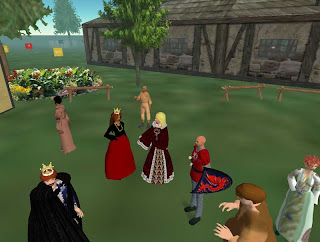Lerman describes “social filtering” as a mechanism in which a user receives information and ratings on products and based on evaluations or recommendations from friends or acquaintances in an online social community. Some social recommendation systems make this easily accessible and thus feedback from an online friend/acquaintance/fellow user can occur without prompting. For example in Digg you see the article rating (diggs) right next to the article. In contrast, real world advice is not often given unless asked.
In her article, Lerman did some statistical analysis to show that users tend to digg the articles submitted by their friends and they also digg the stories their friends digg. To some extent this applies to real world recommendations as well. I tend to have similar views as my friends and their influences tend to rub on me. To me, this comparison centers on the issue of trust I explained about in my last blog entry on Couch Surfing.
My friend mentioned that digg changed the algorithm that determines what articles get on the front page about a year ago. It used to be heavily favored toward the articles that had the most overall votes, but now it’s more about article that have been uprated recently. He said that it upset some of long time contributors who had many friends and were used to having their choice works on the front page. I want to believe that in theory, having many people rate something will eliminate any individual bias since those individuals will be outvoted by the will of the many. However if what gets viewed and rated is biased toward people with connections, then true quality falls second to relationships. I personally feel that there’s a bit of bias towards friends, but overall quality is still the larger factor in online social evaluation.
 Recent articles on Digg
Recent articles on DiggNew Digg Algorithm Angers Some Users
One of the features of having multiple users rating articles in digg is that it gives less weights individual users. In real world situations getting advice from one or two people means that those opinions will carry more weight in decision making. From a statistical perspective, having a larger sample size of opinions means that one is more likely to get a rating system that is more reflective of the greater population. On the other hand, one problem is verifying the validity of the reviews. Online users have more anonymity so people are less accountable than in real life. I think it’s easier to judge emotional investment of a user and his or her rating in real life (not counting professional actors). For some social recommendation systems, point voting like in Answerbag or Digg doesn’t reveal a user’s involvement in the decision. Some users might have a really strong positive opinion, but his/her vote is treated the same as a user with a mild opinion.
For online social recommendation systems that involve more user input such as reviews on Amazon, there is the problem of misinterpreting text. For example I’ve seen on Amazon examples of sarcastic book reviews that might seem like praise but are actually mocking the book and the author. One might argue that the same applies for real life sarcasm, but I feel it’s more difficult to interpret written sarcasm due to lack of facial cues, tonal cues etc…
One strength of an online social recommendation system is that it centers on products and it’s easy to find reviews for a given product. For example let’s say that I want to know if I should buy the book “Facebook for Dummies” to help me in my social computing class. On Amazon, it’s easy to get such a review simply looking up the user reviews. Sometimes in real life it’s difficult to find knowledgeable people who can give sound advice in a particular area. For instance, it might be difficult for me to find someone who has read that book in real life.
 Facebook For Dummies
Facebook For DummiesOn the other hand, one problem with social recommendation systems is that they don’t tend to do a good job tailoring reviews to a particular user. In real life, you can discuss your background, your particular mood, etc… with others so that their advice suits your particular needs at that time. For example if I know my friend just broke up with his girlfriend I wouldn’t recommend a romantic movie to him even if I thought it was a good movie. Instead social recommendation systems are typically designed for a user to learn about the interests of other users. If you’re the type of person that’s into specific, obscure interests chances are that online recommendation systems will bury those under the interests of the majority in that social community. However, with tagging and other association mechanisms in some social recommendation systems once you find something of particular interest, many online systems also can link that to similar interests. For example, on Amazon there’s a feature that says, “Users who bought this book also bought these other books: ....”
 Charlie Weis fans might also like books on Lou Holtz and Notre Dame Football
Charlie Weis fans might also like books on Lou Holtz and Notre Dame FootballOnline recommendation systems work well in tandem real advice seeking in that each presents a different type of recommendation that together paints a brighter picture. Online systems display the opinions of many other users in a convenient and organized manner. Point, star or other types of unit rating systems provide easy comparisons between products and services. Each product/service is rated by many users and thus there is less weight to individuals. This prevents outlier opinions from having too much influence. These systems are useful when trying to see general opinions of a wide audience. Also, the seeker of advice can remain more anonymous in real life and thus eliminate any personal biased towards you. If you’re a famous celebrity people might give biased answers to you in real life while online anonymity allows for more candid evaluations.
Real life recommendations provide another type of evaluation. Typically they’re more in depth and can be tailored to your personal situation. They’re also much easier to verify for validity. On many online evaluation sites I don’t know much about the personal identity of the evaluator or the user. In real life I tend to give more credit to advice from people who I believe have more expertise. This can be difficult or even impossible for some online recommendation systems. However, real life recommendations are difficult to gather in mass. This is why sometimes online recommendation systems are more suited to a particular effort and other times it’s more practical to seek real life recommendations.
 I found the profile of a professor of a class in which I'm the TA. It’s kind of weird to find out she knows fencing or that she’s been to over 50 different countries through Couch Surfing.
I found the profile of a professor of a class in which I'm the TA. It’s kind of weird to find out she knows fencing or that she’s been to over 50 different countries through Couch Surfing. My first interaction in Hobbo Hotel with a guide. I did ask him questions about Hobbo Hotel but I was nervous when talking to him.
My first interaction in Hobbo Hotel with a guide. I did ask him questions about Hobbo Hotel but I was nervous when talking to him. Some other guy's room. It's pretty nice compared to mine
Some other guy's room. It's pretty nice compared to mine My friend Shawn has so many good reviews. Why would you hang out with me when you can hang out with a guy who will serenade you to sleep?
My friend Shawn has so many good reviews. Why would you hang out with me when you can hang out with a guy who will serenade you to sleep? A lounge in Habbo Hotel.
A lounge in Habbo Hotel.




